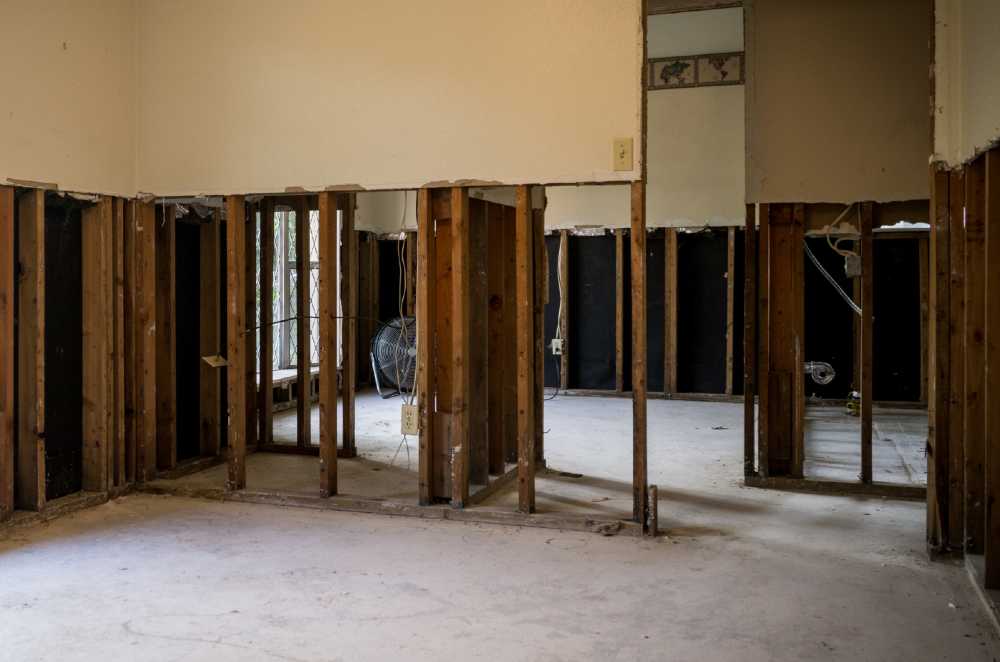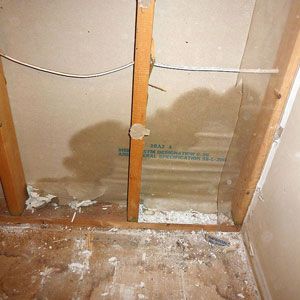Typically utilized to construct walls and ceiling in most houses however drywall is particularly vulnerable to water damage originating either above or below.
Best way to cut drywall after a flood.
Measure up from the floor to a decided upon height.
Mark a straight line.
You want that extra half inch of removal so when you put in the new replacement drywall you re not fighting the uneven floor.
Wallboard soaked by dirty floodwaters will have to be replaced.
However don t let them dry in sunlight because they could warp.
Make your inspection easier and speed up drying time by moving everything out of the room.
If a room with drywall walls was flooded then you ll need to cut away the bottom section of drywall that s at least 30cm 12 inches above where it got wet.
Cut along the chalk line with a utility knife.
Grab at the upper and lower holes you ve cut and pull a large chunk of drywall off the nails on the nearby stud.
If you can easily see the damp in your sheetrock the walls are probably painted with one or two coats of flat or semi gloss paint.
Keep moving along the wall pulling chunks loose as you go.
Use a pencil to draw a scoring line.
Factor in wall covering or paint type.
It is done so that we can remove the drywall and address any moisture issues behind the actual wall.
A flood cut is when the water restoration contractor has to cut out the drywall from your property.
When the drywall breaks on a stud make another vertical hole in adjacent gap and continue removing the drywall by hand.
The tarp is a smooth surface that will keep.
Carefully loosen and remove the damaged drywall.
Be sure to check carpet and padding for water damage and pull it up if necessary.
Place tarps place a tarp at the base of the wall to catch debris.
How to remove water soaked drywall.
Doing this allows you to cut regular drywall in half 24 inches lengthwise and have minimal waste.
With a sharp utility knife or other cutting tool follow the pencil line and lightly cut through the paper layer of drywall.
The cut is made 12 18 inches above where the flood damage stopped so that s why it s called a flood cut.
If you see mold growing on any drywall then you ll also have to cut away the drywall and remove it.
Prop the sheets against the wall to dry.
Drywall is inexpensive quickly installed and easily cut to size making it an ideal construction material.
The best tools for cutting drywall are utility knives putty knives reciprocating saws oscillating multi tools and track saws with dust collectors.
Mold cannot be properly cleaned from porous materials like drywall.
If clean rainwater damaged the wallboard you can cut a 4 to 12 inch high section out of the top and bottom of the walls.




















